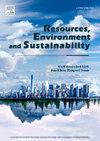前瞻性生命周期评估的最新进展:当前的实践、趋势和对未来研究的影响
IF 12.4
Q1 ENVIRONMENTAL SCIENCES
引用次数: 0
摘要
前瞻性生命周期评估(pLCA)由于其固有的面向未来的特征而受到人们的关注,它是每一种面向决策的生命周期评估的重要组成部分。先前的研究强调了对新兴技术进行pLCA的挑战,将它们分为可比性、数据可用性、可扩展性和不确定性等问题,并提出了解决这些挑战的一般框架。因此,近年来pLCA的应用迅速增长,新兴的方法解决了pLCA的局限性,并改进了pLCA。本综述旨在整理和分析科学文献中出现的pLCA方法,确定最佳实践和局限性,以指导未来的研究。它讨论了pLCA方法上的进步,包括前瞻性生命周期清单(pLCI)数据库、前景建模、场景开发和前瞻性生命周期影响评估,为从业者提供了见解。虽然pLCA研究越来越多地涉及背景系统的变化,但有些研究,特别是较早或较不系统的研究,未能充分整合细微的未来情景。回顾的研究强调,纳入与能源、材料、运输和工业系统转型相关的未来情景可以显著影响LCA结果,强调了将这些情景明确整合到pLCA中的重要性,以确保可靠和有意义的结果。为了确保可靠的LCA研究,重要的是要考虑pLCI数据库的使用,考虑不同的技术成熟度水平、它们的改进和扩散速度,并结合空间因素。然而,将pLCI数据库与标准LCA工具集成仍然很复杂,缺乏从业者的指导。此外,气候变化与各种影响类别之间的相互联系是未来评估中不确定性的主要来源,这突出表明需要改进前瞻性清单建模和影响评估。未来的研究应进一步探索气候变化对pLCA量化的时空影响,开发面向未来的表征因子,扩展pLCI数据库,并通过整合新的分析工具和模型来增强pLCA研究的适用性。本文章由计算机程序翻译,如有差异,请以英文原文为准。

Recent advancements in prospective life cycle assessment: Current practices, trends, and implications for future research
Prospective Life Cycle Assessment (pLCA) is gaining interest due to its inherent future-oriented feature, which is an essential component of every decision-oriented life cycle assessment. Previous studies have highlighted challenges in conducting pLCA for emerging technologies, categorizing them into issues of comparability, data availability, scaling, and uncertainty and propose general frameworks to address these challenges. Accordingly, the application of pLCA is rapidly growing in recent years, with emerging methods addressing the limitations, and improving pLCA. This review study aims to compile and analyze emerging pLCA methods from scientific literature, identifying best practices and limitations to guide future research. It discusses methodological advancements in pLCA, including prospective life cycle inventory (pLCI) database, foreground modeling, scenario development and prospective life cycle impact assessment, offering insights for practitioners. While changes in background systems are increasingly addressed in pLCA studies, some, particularly earlier or less systematic ones, fall short of fully integrating nuanced future scenarios. The reviewed studies highlight that incorporating future scenarios related to the transformation of energy, material, transport, and industrial systems can significantly influence LCA outcomes, reinforcing the importance of explicitly integrating such scenarios into pLCA to ensure reliable and meaningful results. To ensure robust LCA studies, it is important to consider the use of pLCI databases, accounting for varying technology maturity levels, their improvement and diffusion rate, and incorporating spatial considerations. Yet, integrating pLCI databases with standard LCA tools remains complex, with a lack of practitioner guidance. Moreover, the interlinkage between climate change and various impact categories is a key source of uncertainty in future assessments, highlighting the need to improve both prospective inventory modeling and impact assessment. The findings call for future research to further explore the spatiotemporal effect of climate change on pLCA quantification, developing future-oriented characterization factors, expanding pLCI databases, as well as enhancing the applicability of pLCA studies through the integration of new analytical tools and models.
求助全文
通过发布文献求助,成功后即可免费获取论文全文。
去求助
来源期刊

Resources Environment and Sustainability
Environmental Science-Environmental Science (miscellaneous)
CiteScore
15.10
自引率
0.00%
发文量
41
审稿时长
33 days
 求助内容:
求助内容: 应助结果提醒方式:
应助结果提醒方式:


